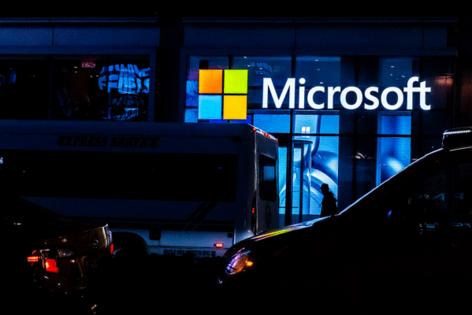Microsoft, beset by hacks, grapples with problem years in the making
Published in Science & Technology News
The world’s largest seller of cybersecurity products has a problem with its own cybersecurity.
In recent years, Microsoft Corp. has been hit with a series of embarrassing hacks that have exposed corporate and government customers. Earlier this month, the U.S. Cyber Safety Review Board issued a scathing report documenting the company’s inability to stop hackers tied to the Chinese government from pilfering the email boxes of U.S. officials. The report’s authors called on Microsoft to institute urgent reforms.
Amid the mounting criticism, the company has pledged its most ambitious security overhaul in two decades. Among other steps, Microsoft says it will move faster to address cloud vulnerabilities, make it harder for hackers to steal credentials and automatically enforce multifactor authentication for employees.
The security reboot is a major commitment, but critics question whether Microsoft has sufficient incentive to make deep and lasting changes. Because customers are so reliant on the company’s software, they can’t easily switch to other providers. Microsoft’s cybersecurity operation, meanwhile, generates more than $20 billion in sales per year and has been among the company’s fastest growing sources of revenue. Many of the anti-hacking tools are sold as a bundle with Microsoft’s software, prompting some critics to accuse the company of anticompetitive business practices.
Citing Microsoft’s “shambolic cybersecurity,” U.S. Sen. Ron Wyden introduced draft legislation on April 8 that would require the government to set mandatory cybersecurity standards for collaboration software. The Oregon Democrat said “vendor lock-in, bundling and other anticompetitive practices” result in the government spending “vast sums” on insecure software.
Noting the cyber review board’s assertion that Microsoft isn’t focused on security, Wyden told Bloomberg: “For a company that is entrusted with as much sensitive government information, particularly one generating tens of billions of dollars in cybersecurity revenue alone, that is unacceptable. Relying on government tech vendors to do the right thing out of the goodness of their own hearts has been a losing strategy for decades.”
Microsoft declined to comment on Wyden’s draft legislation or remarks. Describing a cybersecurity landscape that has never been more challenging, the company said it has a “unique role to play in keeping the world safe.”
‘Ground zero’
In an interview at Microsoft’s Seattle-area headquarters earlier this month, security chief Charlie Bell described the company as “ground zero” for hackers working on behalf of foreign governments. In part, that’s because Microsoft dominates the market for corporate productivity and desktop operating system software.
Recent attacks have struck alarmingly close to home. Early this year, a Russian state-sponsored group was blamed for combing through the email accounts of top Microsoft executives — prompting the company to reassign thousands of engineers to help mitigate the intrusion and accelerate security updates. In May, a hacking gang linked to the Chinese government was accused of stealing one of Microsoft’s access tools and used it to break into the email accounts of U.S. Commerce Secretary Gina Raimondo, U.S. Ambassador to China Nicholas Burns and hundreds more, prompting the cyber review board inquiry.
...continued
©2024 Bloomberg L.P. Visit bloomberg.com. Distributed by Tribune Content Agency, LLC.







Comments